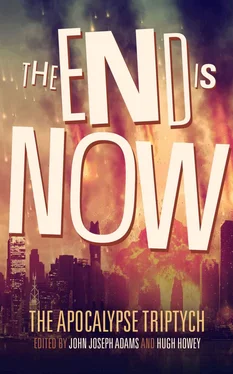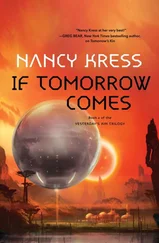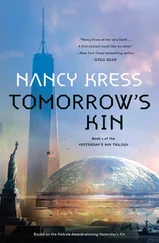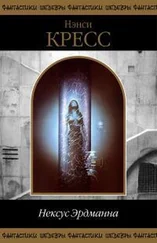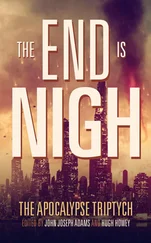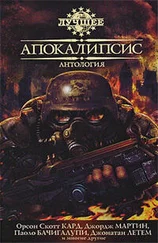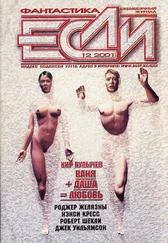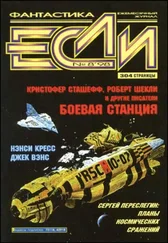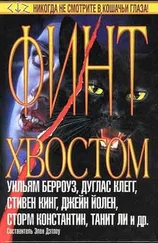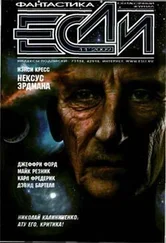“What? No,” Shannon said. “This is, I mean, she recorded a message. We couldn’t all go home, there wasn’t space.”
A man behind Shannon coughed loudly, his expression a warning.
“Bloody hell, Wentworth. It’s Neta’s family. They deserve to know the truth.” She turned back to Lucy and her dad. “Your mom chose to stay so that I could come home . . . she knew I was pregnant.”
“Neta would do that,” Dad said. Tears reddened his eyes, but he managed a smile. “God, she would do that.”
“This is her last message. Do you have power? It had a full charge when we left, but if you need more, we can hook up a battery for you.” Shannon walked to the edge of the stairs, holding out the bag.
“We have enough,” Lucy said, stepping down from the porch and taking the bag. It felt like a small laptop was inside. “So she’s really gone,” she whispered to Shannon.
“I’m sorry, sweetheart, she is,” Shannon said. She looked like she might cry, too.
Lucy nodded and pressed her lips together. “Thank you,” she said.
“I’m sorry if we don’t ask you to stay,” her dad said as Lucy turned and climbed the steps.
“I understand,” Shannon said.
Lucy hugged her father’s side, and they watched as the woman and her escort got back into their car and made a swinging turn, driving off down the road in a swarm of dust.
They played the message on the military’s portable DVD player, just the two of them, not calling Jack in from the barn in unspoken agreement. Lucy loved Jack, but this was a family thing.
Mom seemed so composed on the screen, but so tiny. Her face was lined and tired, her dark eyes bright, her words steady and full of love. There was no reproach, no anger, no blame.
She even called Lucy Lucy.
And then that final moment, just before the message cut out, when the tears broke for a shining second from her mother’s eyes, and she whispered to the camera: “Love her, Paul. Give our little light all the love I won’t be there to give. And don’t hang on to me. I want you both to live, to be happy.”
Lucy bolted from the kitchen and out onto the porch, sobbing. Her dad joined her, his big arms wrapping around her shoulders and pulling her into his warm, flannel-covered chest.
“I was so mad at her,” she said, her breath misting in the freezing air. “But I didn’t mean it. I didn’t.”
“She knew, Luce, she knew.” He pressed his lips into her hair and rocked her gently.
“I can’t tell her though. She’s gone. Just . . . gone.”
“She isn’t gone. Your mother is not gone.” The force of his words shocked Lucy, and she pulled away a little to stare up into his face. “Are the stars gone?” He pointed at the sky.
“What? No, we just can’t see them.”
“Exactly, Lucita. They are still there, just like your mom. Invisible, but shining down on us all the same.”
They stood for a long time out on the porch, until Jack’s footsteps roused them.
“You coming inside?” Jack asked, looking them over, questions in his eyes.
Lucy nodded. She slipped her hand into his good one and took a last look at the sky. Invisible, but still there. She squeezed Jack’s fingers and walked through the door.
ABOUT THE AUTHOR
Annie Belletis the author of The Twenty-Sided Sorceress and the Gryphonpike Chronicles series. She holds a BA in English and a BA in Medieval Studies and thus can speak a smattering of useful languages such as Anglo-Saxon and Medieval Welsh. Her short fiction is available in multiple collections and anthologies. Her interests besides writing include rock climbing, reading, horseback riding, video games, comic books, table-top RPGs, and many other nerdy pursuits. She lives in the Pacific Northwest with her husband and a very demanding Bengal cat. Find her on her website at anniebellet.com.
ROCK MANNING CAN’T HEAR YOU
Charlie Jane Anders
This guy came into the half-stocked convenience store where I was working, and he wanted me to empty out the safe. He had a waxy mustache and soul patch, and he wore a poncho over a bulky football sweatshirt and knee-high socks. He was waving a shotgun that looked like someone had shot a grouse with it back in 2009, and then it had sat in a closet ever since. I thought about angles of escape, up over his head or around behind the Juicy Yoo cooler—because I’m Rock Manning, the internet’s favorite hyperfiend, and that’s what I do.
Then I shrugged and put up my hands.
The trouble was, he couldn’t get at the safe because it was keyed to my vital signs, so if my heart or breathing sped up then the safe went into total lockdown, and if my heart stopped then every alarm went dog-crazy. My boss Ramon couldn’t even get cash for legitimate purposes half the time because I’d be doing jumping jacks and thinking about whether we should stage a trolley accident or a scooter joust when we were making our slapstick movies this weekend. I had to practice no-mind deep breathing just so my boss could take out petty cash.
With this guy waving his gun at me, my heart juddered so damn hard the tumblers in the safe hugged each other for dear life. He almost gave up and left, but then he found some extra drowsy cough syrup and made me drink some of it along with a ton of Grand Marnier, with that shotgun in my face the whole time I was chugging. My heart stayed pigeon-like, and I told the guy he’d have to be patient and wait for the stuff to take effect. He wanted to keep force-feeding me downers but I reminded him that if I died the safe locked up tight.
He and I ended up sitting around the store a couple hours, talking about old movies and video games and stuff. Reginald loved all the cop buddy comedies of the eighties and nineties, and he could recite long sections of Lethal Weapon from memory. Before I even knew what I was doing, I was telling Reginald that a bunch of us made our own amateur web movies in Boston Common and he should swing by this Saturday and join in. I guess it was the cough syrup, or just the fact that we’d been talking for ages and he’d put down the gun by then. Five minutes after he thanked me and wandered off down the street, I took a deep breath and heard the safe un-jam itself.
I meant to tell some of my friends about Reginald, but then I got sidetracked into thinking about my character. Not my real-life character, which I didn’t really know much about, but my movie character.
Think about it! Harold Lloyd is the same guy in every one of his movies—a small-town innocent, maybe a little egg-headed but not street smart, with his heart on his sleeve but also full of crazy ambitions. I could be like that, except maybe more cunning and just a little loopy. Or okay, a lot loopy. Coming off the super-cold-relief formula and cognac buzz, I felt a swelling urgency that people should root for me, not just laugh at my hijinks.
Janelle, the cute film student with the rainbow dreads, agreed with me. The comic hero has to be loveable or relatable, or at least there has to be a moment of connection with the audience in between all the falling gargoyles, she said. The two of us cornered Sally Hamster, our director, who kept trying to get us to talk to her hands. Sally was like, “I make art during the week. This weekend shit is just for fun.” Sally had been making serious strides at film school until I came back into her life, fully recovered from my nervous breakdown and eager to make more weird movies on the internet. But Janelle and I both said it wasn’t about art, just making the fun as fun as possible.
I kept forgetting to mention Reginald the corner-store robber, until he showed up on Saturday wearing some kind of bright red wrestling costume, or maybe those were just his regular exercise clothes. We dressed Reginald up as a cop, and a bunch of the film school kids played a motorcycle gang who’d started riding bicycles because gas was $12 a gallon, so they all overcompensated by whooping really loud and blasting heavy metal when they pedaled into town.
Читать дальше
